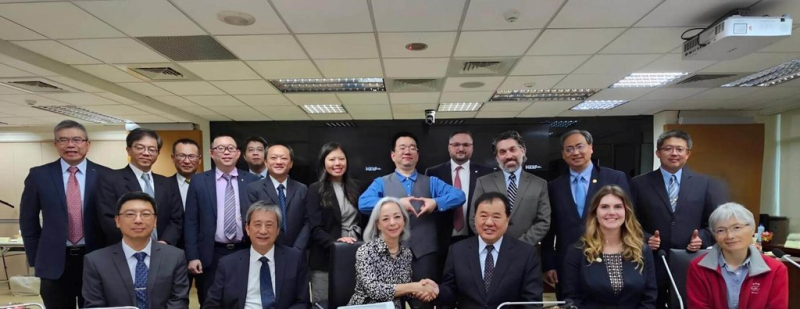
The U.S. Department of Labor, having included Taiwan in its "List of Goods Produced by Child Labor or Forced Labor" in 2020 and 2022, recently affirmed Taiwan's efforts during the visit of Thea Lee, Deputy Undersecretary for International Affairs, from February 26 to March 1. Lee conducted on-site inspections related to the rights of Taiwanese fishermen, child labor, forced labor, and similar issues.
The visit, which resembled the previous EU yellow card incident, was not disclosed to the public. The Ministry of Agriculture's Fisheries Agency reported that Taiwan's endeavors and achievements in improving human rights in the fishing industry were recognized.
As part of the arranged itinerary, Lee visited Kaohsiung Qianzhen Fishing Harbor on February 28, inspecting the labor rights of tuna longline fishing vessels. Meetings were also held with industry groups, civil organizations, and the Fisheries Agency.
While the U.S. Department of Labor acknowledges Taiwan's efforts, it still identifies some institutional problems related to foreign fishermen, such as the dual-track system for hiring foreign workers, the organization and negotiation rights of migrant workers, and issues concerning labor brokerage fees. Both sides aim to continue dialogue and collaboration to combat forced labor and address challenges faced by foreign fishing crews.
The Fisheries Agency highlighted the ongoing improvements, including the "Fisheries and Human Rights Action Plan" approved by the Executive Yuan in May 2022. Additionally, increased recruitment of fisheries labor inspection officers aims to enhance the coverage of domestic and foreign fisheries labor inspections. Systematic preventive measures and actions have been implemented to address the risks of forced labor in distant-sea fisheries.
Furthermore, amendments to the "Regulations for the Permitting and Management of Non-Republic of China Nationality Crew Members Employed Abroad" were introduced. These changes include raising the minimum monthly wage from $450 to $550, ensuring direct payment of wages without intermediaries, increasing death insurance to NT$1.5 million, providing at least NT$300,000 in actual medical insurance coverage, and establishing a complaint channel for crew members.
〔CNA / Reporter Yang Shumin / Editor Chen Zhengwei〕2024-03-01
〔Photo from the Fisheries Agency〕
